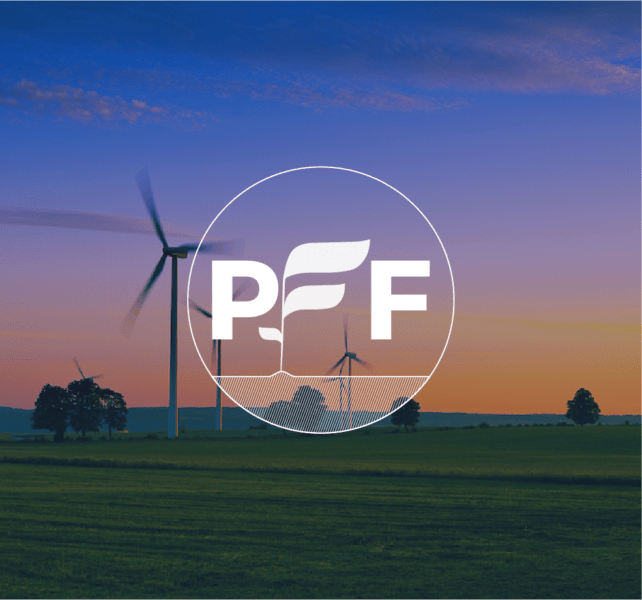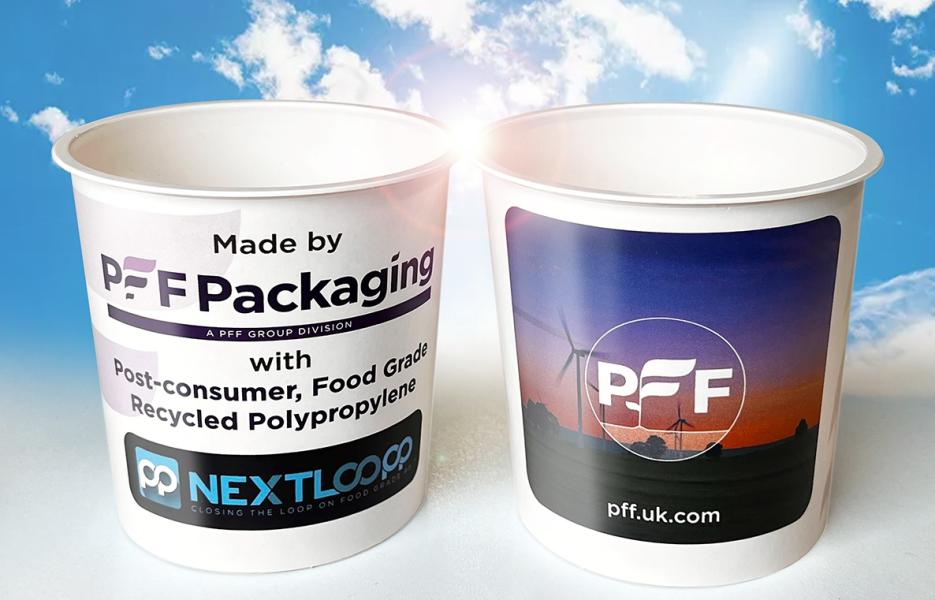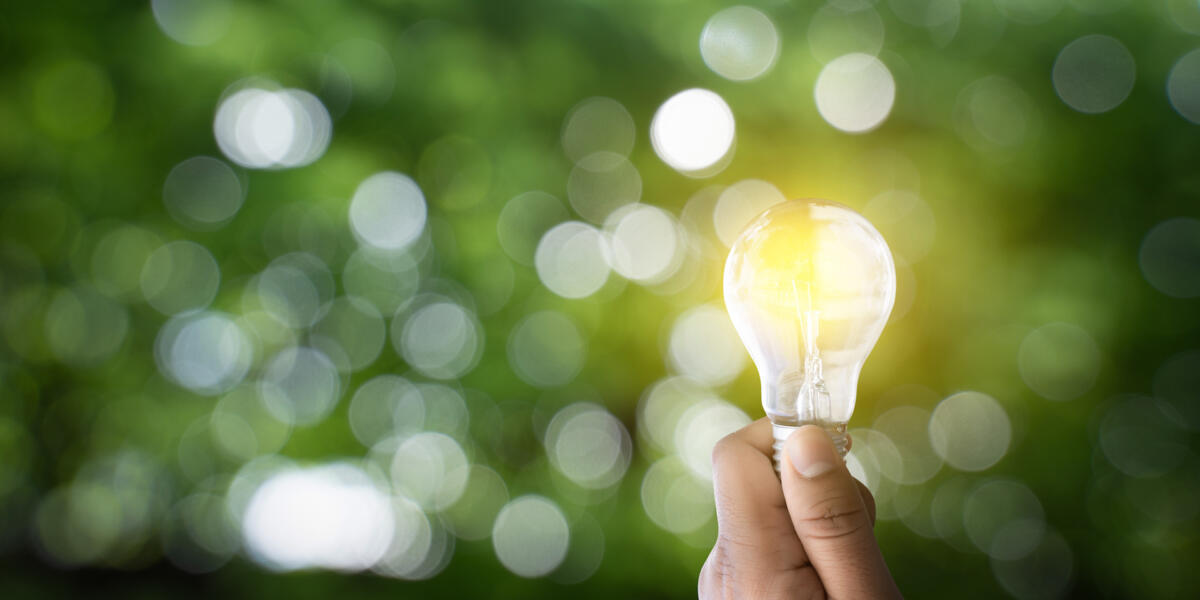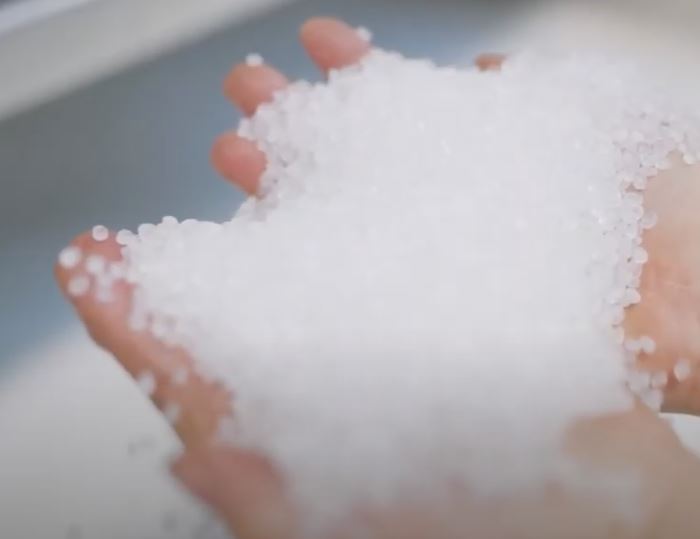From production to administration, we have implemented energy-saving and environmentally-friendly initiatives across our business, seeking to reduce our carbon footprint.

Sustainability is a core value for PFF and we aim to be a leader in the production of sustainable products without compromising the quality and high performance that it achieves. We work closely with suppliers and partners to enable us to offer a variety of food packaging that is produced from recyclable and sustainable materials.
Click here to download a copy of our new sustainability flyer:
PFF converts over 6,000 tonnes of post-consumer waste PET bottles and trays back into rPET food packaging every year. This equates to approximately 600,000,000 – 500ml water bottles. Many of our food packaging products are formed from food-grade recycled PET (rPET) which contains up to 90% of recycled material, over 50% of which is post-consumer waste.
PFF recycles our skeletal waste and re-processes it into new, thermoformable PET and polypropylene sheet. We proactively collect and recycle print scrap into non-food contact items and re-use outer packaging and pallets.
PFF is a participant in the British Plastics Federation Energy Climate Change Agreement which helps the business to reduce carbon emissions by improving productivity and energy efficiency. We have invested in new transformer technology which will significantly reduce carbon emissions at our Keighley site.
The new voltage management technology will reduce PFF’s energy costs and increase efficiency at the site, resulting in a 5% reduction in the firm’s carbon footprint. The transformer enables electricity to be transferred from one circuit to another at changing voltage levels, to improve the safety and efficiency of power systems and reduce carbon emissions.
Our strategy to continually invest in advanced technology demonstrates our commitment to the circular economy.
PFF’s championing of sustainable packaging solutions has seen it invest heavily in technology and software to drive efficiencies and reduce energy consumption.
In 2022, a £2m investment was made in thermoforming equipment and a five-figure sum in extrusion measuring systems to enable the production of sheets of uniform thickness. A new £50,000 hybrid adiabatic cooling system was also installed at Sedgefield to supply chilled water to production processes, cutting carbon emissions and supporting a scale-up of production.
PFF Group’s packaging division is a member of Made in Britain, an initiative that champions UK manufacturing.
As a producer of sustainable packaging, PFF places immense importance on using resources efficiently and our investment demonstrates that we take our carbon reduction commitments very seriously. The IMPAC-T process offers a 46% carbon footprint reduction compared to the current assembly system (independently verified). A digital watermark has been added to PFF’s offset-print labels to aid household waste sorting and recycling processes.

PFF has completed a full-scale production trial using NEXTLOOPP’s prototype post-consumer food-grade compliant recycled polypropylene (PP) resin, PPristine.
This marks a key milestone for the pioneering NEXTLOOPP project which is a global initiative launched by sustainability consultant Nextek, that aims to produce the first commercially available high-quality food-grade PP (FGrPP), closing the loop on food-grade PP.
Read More HereIn early May 2020, PFF’s production site at Keighley received a certificate of recognition from Operation Clean Sweep, an international initiative, led by the British Plastics Federation (BPF) in the UK, that aims to ensure that plastic pellets, flakes, and powders passing through manufacturing facilities do not end up in seas or rivers.
PFF’s participation in the programme is evidence of our dedication to eco-conscious practices and active awareness of our corporate responsibilities.

PFF sends zero waste to landfill. The production waste that we do not recycle ourselves is diverted to Refuse Derived Fuel facilities both in the UK and Europe. Once there, it is processed and converted into energy for heating and electricity. There is no such thing as ‘waste’ to us – we regard it as a precious resource.

Wherever possible, PFF will source materials from local and other UK suppliers, supporting British supply chains.
A vertically integrated business, we extrude our own polypropylene and PET sheet film. The latter can have an optional PE laminate which creates an integrated barrier film for direct food contact applications. Efficient processing reduces both energy use and impact on resources.
Our polypropylene typically contains 30% of PPF’s own post-process waste. PFF’s rPET contains a minimum of 50% of post-consumer food contact waste and at least 30% of our own post-process waste. Pellets are expertly blended on-site, ready for processing.
All PFF’s packaging products can be recycled, where facilities exist.